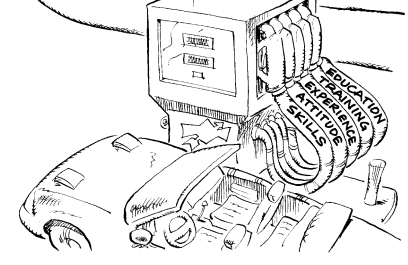LEADING SELF: Financial Empowerment 101
Description
Money is a tool. It is an important tool to support us individually in our lives. You may have particular feelings about money - positive, negative or in-between.

image credit: Money and Youth Guide, Canadian Foundation for Economic Education
A basic economic education means understand the system and how subsidies, taxes, inflation, interest rates and competition affect everyday economics.These will be specific to where you live and are influenced by many factors including politics, social norms, technological change, etc...
The main purpose of this activity is to equip you wtih tools to increase your literacy of money and help you to see opportunities to use them for your future. Whether you are self-employed, a student, employed, unemployed or on income assistance, you need to know the fundamentals of money in and money out. That is really just a balance sheet. Additionally, tools like a budget can help ensure that your balance sheet remains "in the black". All that means is that you spend less than you "earn" so that you avoid debt.
- Income Statement: Essentially a budget of projected revenue and projected expenditures expected during a specific timeframe.
- Cash Flow Statement: A table of the flow of cash (and cash equivalents) into and out of your accounts during a specific period. It includes details on when (month or quarter), and where, the money will come from and what it will be spent on.
- Balance Sheet: This is a “snap shot’ of the state of your finances at a given point in time. It shows what you have (assets), what is owed (liabilities) and what is left over (equity).
Task
1. Complete the shared balance sheet and budget templates. Use them as-is or adapt them for your needs.
2. Identify 2 areas of your finances that you would like to improve.
3. Create a post in Discussions to share your financial goals.
Learning Objectives
The purpose of this exercise is to have participants design a framework for financial accountability and empowerment. Learning to interpret and understand budgeting, money management techniques and cash flow will aid you in building critical skills for life, leadership and their futures. Featured skills and competencies include: financial literacy, being resourceful, being strategic, being realistic, dealing with change, and problem solving.
Continue to LEADING SELF: Personal Reflection on Skill Development »
Submissions (1)
-
Odale Charles Discussion post: 9585.8 days ago
